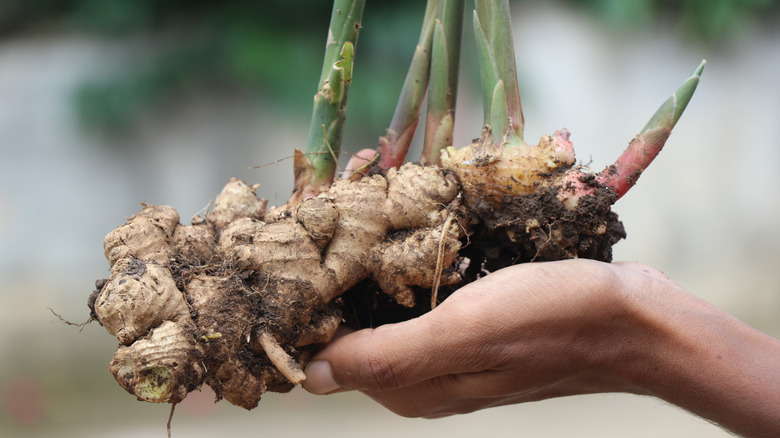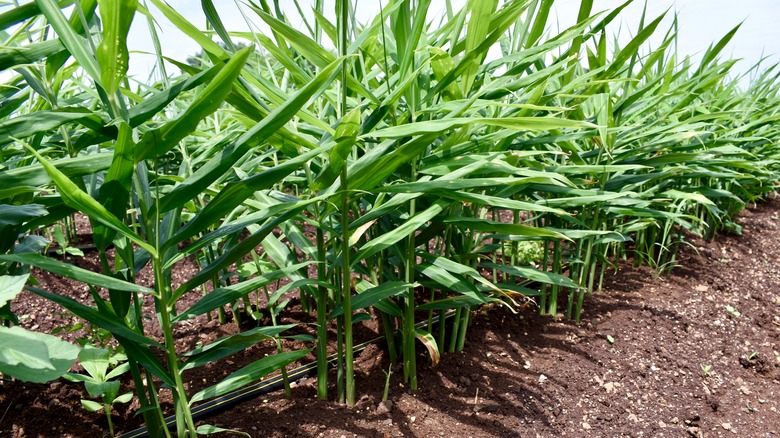Why Are My Ginger Plant's Leaves Turning Brown?
Spicy, peppery, and with a bit of a kick, culinary ginger is a cooking staple easily grown at home. It's a beginner-friendly perennial that can be grown indoors and outdoors. Though its leaves are edible, the ginger root is the most coveted part of this plant. However, because it grows beneath the soil, gardeners have to rely on the appearance of the leaves to assess a plant's health. Normal, healthy leaves are a vibrant green. If your ginger leaves are turning brown, your plant is likely experiencing stress.
Stressed plants will fail to thrive and likely die if left untreated. Luckily, typical stressors have simple solutions. For example, browning from a lack of water is easily fixed by routine watering and monitoring soil hydration. Pests that damage tissue and infect the ginger root can be driven out, and nutritious soil is but a balanced garden mix away. Ridding your ginger plants of their browning leaves begins with identifying the cause of stress.
Your ginger plant is stressed
If you notice browning leaves on your ginger plant, it's likely due to plant stress. Plant stress occurs when growing conditions are wrong or suddenly change. Though it is a hardy plant, ginger still needs nutrients, water, and sunlight like any other. Stress can also be caused by pests, which might eat vital tissue and spread disease. Sadly, browning leaves don't vary depending on the cause. However, you can make a difference by meeting the ginger's needs.
Ginger plants require bright, indirect sunlight, also called partial sun — inadequate light results in lower vitamin production and brown leaves. Should you assess that your plants aren't getting enough light, or if they are getting too much light, replant them in another area. If the ginger does get the right amount of sunlight, the brown spots could be from lack of water. Ginger should be well-hydrated and planted in well-draining soil to avoid root rot from standing water.
When water and sun requirements are met, brown spots could be due to an imbalance in nitrogen, phosphorous, and potassium. Consider feeding the plant with a balanced fertilizer to ensure it's receiving the proper combination of vitamins. Pests like Chinese rose beetles and nematodes are known for infesting ginger. While beetles eat and kill healthy tissue, nematodes infect ginger from beneath the soil. Eliminating and deterring infestations will significantly decrease any stress they may be causing, and once the stress vanishes, so too will the brown spots.

